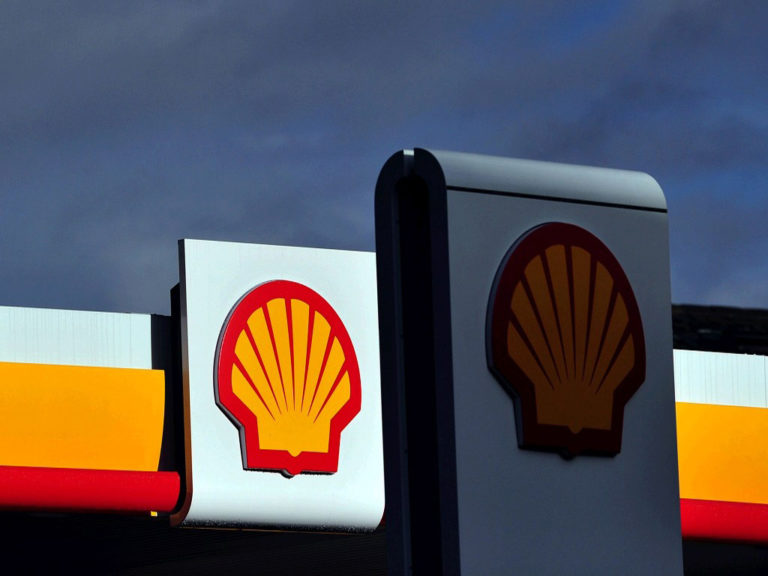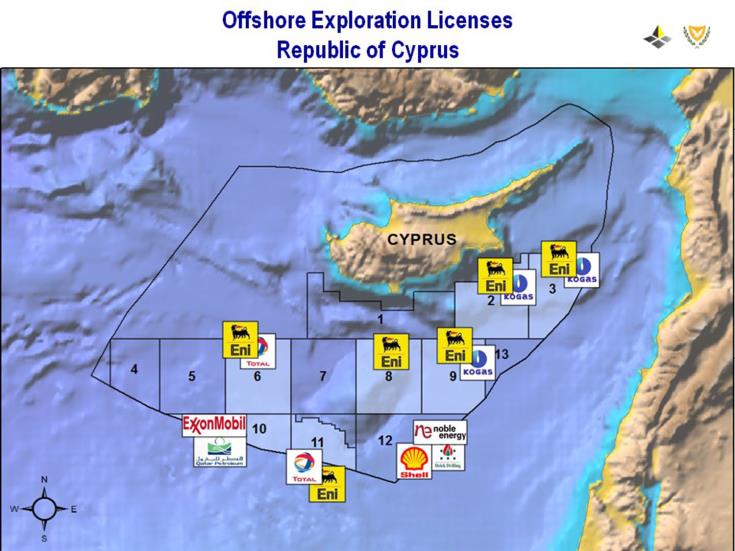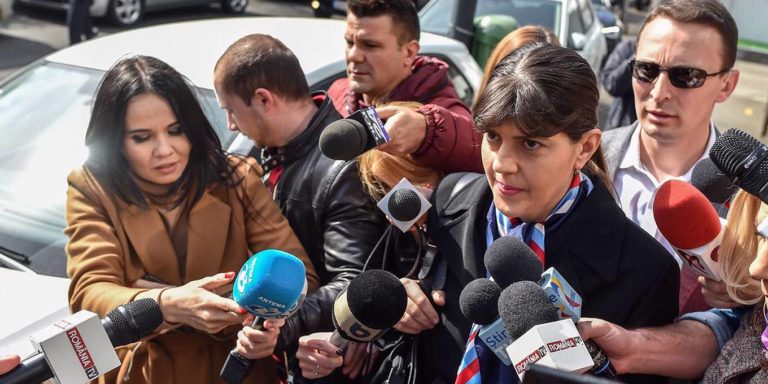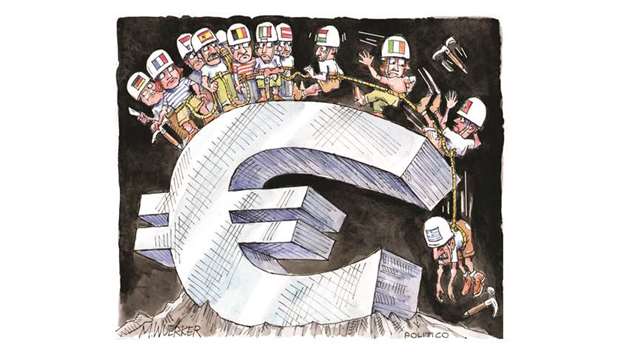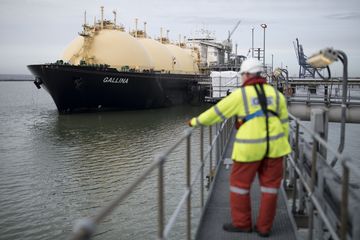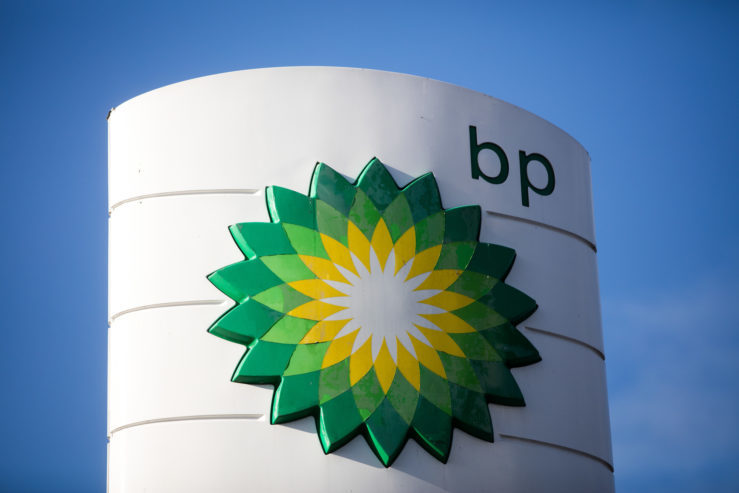Jeremy Arbid
The years since unrest swept across the Arab world have shown that the response of partial reforms and economic measures were not sufficient. Instead, new social contracts are required to develop economies and human capital, and to emphasize political participation of proactivity over favoritism. This decade has been marked by two shocks, the first being the unrest of populations that led to unrest, revolutions, conflict and civil war in some countries, and the second being the decline of oil prices. Similar to other economies in the region, but not in form, Lebanon’s is rentier because the state largely ignores productive sectors and instead focuses its fiscal and regulatory policymaking to the benefit of the financial and real estate sectors. So while Lebanon’s situation is certainly different from its neighbors in the region its question is the same: now is the time to develop a more peaceful and prosperous society, so what should that look like? Artificial intelligence and the Internet of Things will have a great impact on countries around the world, including Lebanon. However, Lebanon’s current economic model is unfit for the digital era and not agile to adapt to economic innovation and rapid technological change. In the short term, Lebanon will need to invest in the economy by building and rehabilitating infrastructure and it will need to implement a reform agenda. By doing so, a more dynamic economy can be built.
The Current Situation
Lebanon’s economic model is not sustainable. This has been understood for years now but has been allowed to keep operating, even though it has been known that the currency peg to the USD was not designed or engineered for the long term. According to the International Monetary Fund (IMF), public debt was estimated to reach $85 billion in 2018 with GDP expected at $57 billion, for a debt-to-GDP ratio of 150 percent. Meanwhile, economic growth has slowed from 8 percent in 2010 to 0.6 percent in 2017, as measured by the Central Administration of Statistics.
For 2018, the IMF has projected GDP growth at just 1 percent. In the same period, 2010-2017, Lebanon’s spending deficit (including interest payments on debt) averaged $3.6 billion each year according to ministry of finance figures. The economic model relies on internal USD circulation, and depends on the financial and services sectors, tourism, foreign direct investment mainly in the form of real estate, and remittances.
In recent years, not enough dollars have been entering the economy to offset dollars exiting at an increasing rate. From 2000 to 2014, the average annual deficit of the current account – the flows of goods, services, primary income, and secondary income between residents and nonresidents – stood at $5.1 billion each year. By 2015, $9.1 billion more flowed out of Lebanon than in, and that figure has risen sharply since 2015. For 2018, the IMF projects a current account deficit of $14.5 billion, and $15.2 billion in 2019. For the foreseeable future, the lira-to-USD currency peg can be maintained, which the IMF recommends. This is thanks to large reserves held at Banque du Liban, Lebanon’s central bank.
According to the IMF, official reserves – foreign currencies, other assets denominated in foreign currencies, and gold reserve – stood at $36.7 billion in 2015 and rose to $40.2 billion and $40.6 billion in 2016 and 2017, respectively. The IMF calculated official reserves at $36.4 billion in late 2018, and projects reserves to decline to $31.1 billion in 2019. Public bank officials and commercial bankers insist Lebanon is not at risk of a forced devaluation because of the level of foreign currency reserves held by the central bank. The state plans for a course correction With a new government in place Lebanon may now work toward restructuring the economy. The starting point for this was in April 2018 at the CEDRE for infrastructure investment.
In Paris, Lebanon presented donors and investors with a Capital Investment Plan (CIP) to develop the country’s infrastructure and ease supply-side bottlenecks. According to state officials, the CIP was prepared to address specific economic shortcomings: tremendous challenges in public finances, monetary policy that has exhausted all options to maintain stability, low growth rates, high unemployment, increasing levels of poverty, and the balance of payments problem. Lebanon needs 5 percent growth to stabilize the economy and maintain the economic model but has been reluctant to invest in the economy and the country’s infrastructure is worn down because of years of low state investment and overstretched because of the large refugee population plus a growing national population.
To rehabilitate and expand the nation’s infrastructure, the CIP would raise debt and called for an investment need of $20.4 billion, plus land expropriation costs of $2.6 billion for 250 projects that could generate some 178.3 million labor days over three phases each lasting about four years, from now until 2030.
At CEDRE, the CIP pitch was generally well received with donor countries and multilateral institutions pledging $11.3 billion mostly in low-interest loans on the condition that Lebanon commit to reforms. The reforms promised by the state involve fiscal discipline measures – mainly through the reduction of the debt-to-GDP ratio by decreasing the deficit by one percentage point of GDP over the next five years and reducing the subsidy to the failing public electricity utility, Électricité du Liban (EdL), which averaged $1.6 billion per year between 2010 and 2017 according to figures from the ministry of finance, and by shoring up revenue to the treasury by increasing the tax base.2 In February 2019, Lebanon’s Economic and Social Council – an advisory body to the government – issued a report on fiscal measures the state should adopt to address fiscal imbalances, including: elimination of the EdL deficit over the next three years; to reduce the cost of public debt servicing by at least 10 percent through a mechanism that the government, BdL, and commercial banks agree on; and, to reform public sector pension systems and benefits, review public sector personnel and positions, and freeze hiring for the year. To spur economic productivity and enhance the private sector environment international organizations have advised Lebanon adopt an evolving list of structural and sectoral reforms and doing business measures.
The state commissioned management consulting firm McKinsey & Company to draft a vision for growing Lebanon’s current productive sectors and enhance productivity and recommend what sectors Lebanon should focus on in the future. At its core, the vision aims to channel investments to industries and productive sectors that would have a multiplier effect, create jobs, and distribute income and wealth. The elements of the report include repetition of known analysis, assessment of reform needs and priorities, improvements of productive sector performance, and supervision mechanism for achieving deliverables for the productive sectors and projects. Components of this vision require individual assessments. Addressing and adopting the measures promised at CEDRE, advised by McKinsey, and recommended by international organizations will only be a starting point in correcting for nearly 2 decades of inactivity or nondecision making by the state.
However, implementing reforms and thinking toward the future is not so simple for Lebanon. On the one hand, politicians and officials have been repeating since before CEDRE that reforms are necessary and that reforms will be painful to the political elite. If this is so, then maybe we are witnessing an alignment of politics to reality, and the adjustment of culture to support or translate into action takes a long time. On the other hand, Lebanon’s political economy of sectarianism means the political elite are only interested in maintaining the system of clientelism and patronage networks. How these reforms will serve the interests of the elite in this political economic system is unclear. Another problem is that Lebanon’s politicians and officials are thinking where the country needed to be 25 years ago. The challenge is the speed of innovation, and today when a highway or bridge is built it is not guaranteed they will be viable solutions as critical infrastructure. Why? Because of three factors: on the social side of self-reliance of urban environments and the ability of communities to produce what they need could grow exponentially, then the need to trade with neighbors and the paradigm of growth under capitalism may no longer be applicable; if global commerce continues then using non-road based technologies like information transmission to remote locations (such as 3D printers or drone transport) could actually make highways or bridges obsolete. At the current phase Lebanon is still betting on traditional transportation as our viable economic need for 20 or 30 years and beyond when we should have had them 20 or 30 years ago. Another example is the building of power plants with natural gas instead of coal. This fuel source is more efficient and less polluting, but it still exposes Lebanon to fossil fuels and commodity price increases and supply reliability.
However, this might not be the only solution to match electricity supply to need. Lebanon might find decentralized technologies (such as solar photovoltaic) and smaller scale centralized power generation as more efficient and cost productive.
Lebanon is committed to solutions that were conducive in 1999 and therefore there is too much opacity in developing and implementing solutions. There is uncertainty because no one knows what new technologies will come along; there is opacity because we do not know how diligent the CIP and other studies were conducted and whether they are or are not silo-esque; plus, the experts that have been hired to design these visions or plans are definitely not going to tell Lebanon to not buy their products. Beyond correcting the omissions of the last 20-25 years Lebanon must continuously evaluate and prioritize economic and infrastructure needs and pursue solutions aligned with the emerging digital future sure to arrive within the next decades.
Lebanon’s Socioeconomic Situation
Lebanon must be positioned for the digital era in addressing the top socio-economic challenges: that of the lack of gainful employment, rising inequality, and promoting inclusive political participation. The country has grim numbers on unemployment, poverty, income inequality and net worth. The economic bleeding that is visible at the national level in terms of almost a decade of economic stagnation pales in comparison to the situation of individuals. The downturn in Lebanon’s economic output has pushed more people into unemployment or underemployment, increased poverty rates, with income and wealth becoming increasingly concentrated. According to an International Labour Organization (ILO) model, estimates of the total unemployment rate among Lebanese nationals at just under 7 percent in 2018. Unemployment for Lebanese youth is estimated at almost 18 percent. Total labor participation for Lebanese nationals older than 15 (the proportion that is economically active) stood at 47 percent, with the number of people in the labor force above 2.2 million in 2018.
Among the nearly 1 million UNHCR-registered Syrian refugees the ILO in 2017 projected the size of the Syrian labor force in Lebanon at 384,000 and estimated that 36 percent were unemployed.7 McKinsey says Lebanon’s unemployment rate is between 15-25 percent, perhaps the consulting firm is attempting to include the informal labor market as part of its calculation. The first target of the UN Sustainable Development Goals for Lebanon is to reduce the poverty rate to zero by 2030. Lebanon is far from achieving this goal, though the available statistics are very outdated. 2008 poverty stats from a Ministry of Social Affairs and UNDP joint study showed back then that “28 per cent of the Lebanese population can be considered poor and eight per cent can be considered extremely poor”. That means that some 1 million individuals in 2008 were living on $4 per day and another 300,000 were living on less than $2.4 per day. According to a Ministry of Finance/UNDP study from 2017, income inequality in Lebanon is very high. The study analyzed tax declarations from 369,279 taxpayers who had a cumulative income of $5.5 billion, and an average yearly income of $14,846: “the top 2 percent income group accounts for a 17 percent share of total income, while the bottom 59 percent accounts for a 22 percent share”.
Wealth in Lebanon is also unequal, according to investment bank Credit Suisse. The net worth per adult was estimated to $33,726 in 2018.10 But a breakdown shows how little the majority of the population actually owns: 77% of Lebanese adults have a net wealth below $10,000.11 On the bright side, according to the World Bank, human capital constitutes the leading amount of wealth for Lebanon.12 However, estimations and projections about the size and composition of the Lebanese labor market entail much that remains uncertain as far as data accuracy. Likewise, labor policy as well as estimations of future Lebanese labor realities, needs, and opportunities in context of the rapidly evolving global digitization of work, or digital transformation of economies, leaves much to be desired. This makes it crucial to develop our human capital and preparedness for labor uncertainties of coming decades.
Addressing Current Challenges to Join the Digital Era
1. To create employment
Determinants of current and future labor markets and historically important processes such as labor unionization, collective bargaining, regulation of admission to specific labor markets, evolution of social insurance in reflection of social and human conditions (such as increasing longevity) in the past and predictable future over the lifetimes of current workforces are in need of new assessment before embarking on development of a new national labor policy. New policy, however, has to be devised and function as a cornerstone for a sustainable future of Lebanese labor if one takes into account that much of the regulatory framework governing Lebanon’s labor-related social insurance system date back to the early days of the Republic, while the framework for the social security fund and other retirement benefits date to the 1960s, and thus, by the very logic of the importance of labor in human societies, are inadequate for managing today’s radically different and rapidly changing role of human capital in our society.
To project unemployment we must know how many people reside in Lebanon. The World Bank estimated Lebanon’s population at just over 6 million in 2017, counting citizens, refugees and others residing in country,13 but Lebanon must conduct its first population census since 1932.
Job creation in the near term is important, but the concern is that Lebanon’s labor market will continue to be one where there is not much to apply to. The World Bank announced in 2018 $400 million to create up to 52,000 jobs for Lebanese over the next 15 years.14 Lebanon will need to create more – not just 370,000 “incremental jobs” in the agriculture or construction sectors by 2025, as McKinsey recommends,15 but high-quality jobs in the digital economy because as automation rises robots can take the place of lower-cost labor. However, if Lebanon manages
to be an early adopter of digital business structures among other global communities of similar size and capacity, it could become a potent supplier and competitor of high native human capital and high native marketing potential, and the trade heritage of Lebanon could be translated into an economic force for the country. Another question for the future is how to define fair profit and to control for excesses of inequality. Lebanon is not alone in the necessity to remove economic distortion in the sense of injustice, where today a huge amount of labor goes into unpaid or undervalued work (historically mostly from women), and to work that cannot or may not be desirable to automate in the future (e.g. child rearing or geriatric care). However, society would have to approve the value of “volunteer” labor and current economic paradigms do not have formulas to recognize this.
2. To relieve pressure of despondency and object poverty
To alleviate extreme poverty in the near term, Lebanon’s National Poverty Targeting Program (NPTP) must be enhanced and broadened to support more qualifying beneficiaries. NPTP provides support to households living in extreme poverty through a humanitarian asset transfer to eligible recipients in the form of $27 in cash/cash equivalent per household member per month and is partly funded by the World Bank, while the state must include funding to widen the program in the next state budget.
Combating inequality is secondary to the increasing or broadening of social and economic mobility. Lebanon has had provisions of social subsidies but has spent a lot of effort deciding on who gets them, and, unfortunately, has had a lot of experience with political clientelism.
Despite implementation challenges, Lebanon can stimulate economic mobility and redistribute wealth into broader social safety nets through such ideas as universal basic income (UBI), universal basic health (UBH), the expansion of basic provision for education and higher education and guarantees of survivability in times of difficulty. Whichever way this is done should not be discretionary or based on eligibility but universal and without a component of assessment on worthiness of aid.
According to the World Health Organization, Lebanon spent nearly 8 percent of GDP on healthcare in 2016.17 The moral hazard of UBH when the state guarantees payments is that there is no incentive by companies to control pricing, but the state can promise to pay for wellness programs and preventative care plus basic healthcare so that higher costing medical care is less common. Inflation drivers of healthcare are not in the payment for healthcare workers, and the number of workers in Lebanon and their cost is not high when compared to the cost of imported medicines and imported technologies.
3. To minimize the excesses of inequality by redistributive measures and promote inclusive political participation
Before Lebanon can do any forward thinking, it must implement the reform promises of the new government and made at CEDRE and implement the performance enhancements compiled by McKinsey and international organizations. This is a starting point in correcting for almost 2 decades of inactivity or non-decision making by the state and implementing reforms will be a first step in reducing public debt.
The priority is to have accountability of public finance from the past and moving forward, to have public and transparent discussions over fiscal and taxation policy to prioritize stimulation of the economy and improve the internal distribution of wealth, and to have an annual budget and audit in line with the Constitution and public finance rules.19 To begin, the state must fully collect taxes that are already on the books by increasing tax compliance, and it must implement measures from the 2017 tax bill such as leveling fines on built-up property on state or public lands. According to the IMF, tax collection stood at only 50 percent of capacity in 2013.20 Along with shoring up spending and revenue collection comes the need to reduce waste.
Everyone assumes corruption in Lebanon is a serious problem, but the Court of Accounts first needs to measure the problem and Parliament needs to decide what to do with the findings. The state has not conducted an audit of public accounts since at least 2003, and in reconstituting accounts from the 1990s and the 12-year period where there was no state budget, the ministry of finance has said “enormous anomalies” were found.21 So if the state’s objective is to spend and collect to meet the people’s needs then there must be confidence that taxpayers are not being swindled.
Rather than proposing any sort of administrative decentralization, electoral redistricting, or changes to the political structure, Lebanon must exercise better management of public finances to foster political inclusiveness in two ways: first, to promote ownership by the taxpayer of state decision making; and second, to minimize the power of international markets through the instrument of debt which can be greater than the voting power of citizens.
So that Lebanon can create a situation for a consistent and sustainable economy in the digital era, it must heed the recent advice that the head of the IMF, Christine Lagarde, directed to the Arab world: “We need fiscal space for spending on health, education, social protection, and public investment.”22 Lebanon’s fiscal policy, therefore, must be focused on meeting people’s needs and enhancing the connection between fiscal policy and social safety for a higher certainty of entitlement as a taxpayer, and increasing a sense of justice and mutuality between tax contributions and long-term social benefits.
Recommendations
Lebanon must position itself for the digital era by building a sustainable economy for a more peaceful and prosperous society. This requires job creation in the near term by committing the reform promises made at CEDRE to unlock promises of donor financing for the CIP. Long term planning should consider the predictable future demands of the labor market, the reduction of inequality through job creation, increased economic mobility, the designation of social safety nets, and the redistribution of taxation. To promote ownership of state decision making, and to enhance inclusivity in the political process, Lebanon must commit to sound management of the state treasury and accountability of past public finances.
Labor market and job creation
● Review the mandate of Lebanon’s National Employment Office (NEO) to boost labor participation and reduce unemployment.
● Match available labor demand with projects in the CIP for work opportunities in the near term.
● Before embarking on the creation of a new national labor policy for the digital era, Lebanon must fully assess past and present labor market conditions and workforces by setting a statistical foundation, in the form of a population census and other statistical surveys. This would require auxiliary actions such as empowering the nation’s public statistics body.
● Draft and adopt a new labor policy for the digital era by addressing such areas as: labor unionization; collective bargaining; regulation of admission to specific labor markets; health, safety and laborers’ rights; and social insurance.
Social insurance and equality
● Develop and implement a poverty reduction strategy.
● Widen the reach of the National Poverty Targeting Program (NPTP) for those living in extreme poverty, and devise and enact viable safety net programs including direct payments for those below the poverty line. Allocate state funding for the NPTP and new programs.
● Review and update legal and regulatory frameworks of social insurance systems and safety nets.
● Review and consolidate current social insurance systems. Create new social safety nets with universal access to stimulate economic mobility and redistribute wealth.
Promoting political inclusivity
● Review and adopt fiscal and state reforms and business enhancement measures promised at CEDRE, documented by McKinsey, and presented by the Economic and Social Council to reduce public spending and stimulate economic productivity.
● Implement a monitoring mechanism to oversee the deployment of CEDRE donor funds to CIP projects, and which contributes to the continuous evaluation and prioritization of economic and infrastructure needs.
● Increase tax compliance and fully collect taxes and fees already on the books to shore up state revenue. Review and commit to public discussions of taxation policies before any revision of the tax code.
● With an international auditor, audit finances from past years as per the 2005 budget law.
● Commit to an annual budget as per the Constitution and public accounting rules.
● Draft and align medium- and long-term fiscal policies to meet people’s needs and enhance the connection with social safety and increase a sense of justice and mutuality between tax and fee contributions and public spending
